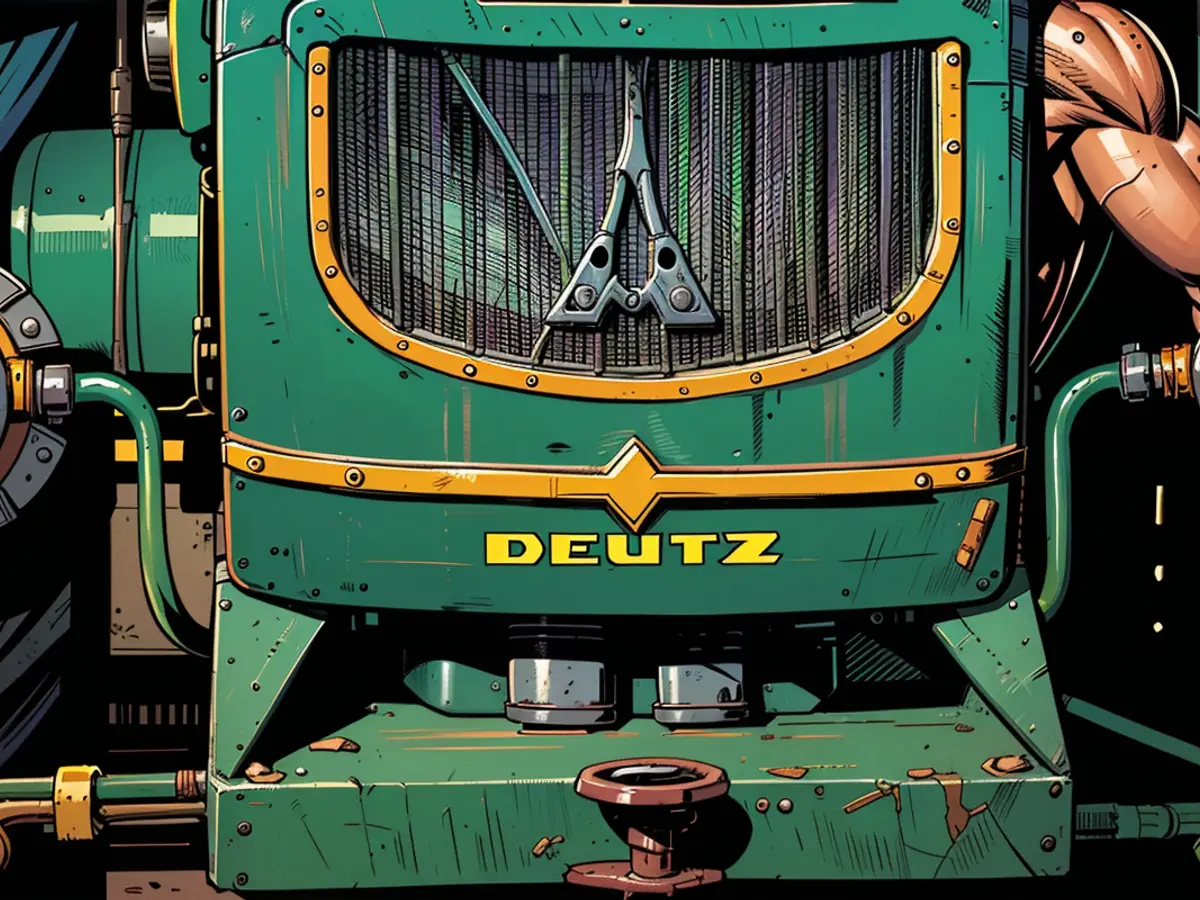Traditional Cologne firm ventures into defense sector with strategic shift in business focus
In the current surge of militaristic spending, even non-military corporations are finding profitable prospects. Deutz, a traditional engine manufacturer based in Cologne, is revisiting an old line of business. Shareholders seem to be thrilled about the vision.
The catalyst for this shift happened over two years after the term was coined by Chancellor Olaf Scholz, leading to unexpected market tumults at the stock exchange. At one point, Deutz's shares climbed an impressive 18% due to the announcement made by CEO Sebastian Schulte in a weekend interview - the traditional firm was considering expanding into new ventures, including the arms industry.
The company's plans involve producing engines not only for civilian purposes but also military applications, such as for armored personnel carriers, personnel transporters, and supply vehicles. Deutz is also considering providing battery storage solutions for military uses, like powering hospitals. According to Schulte, this is an enticing field arising from the recent shift.
Not only the German government has boosted its defense budget since Russia's invasion of Ukraine in February 2022, establishing a 100 billion euro special fund for the Bundeswehr's modernization. Globally, military expenditure in 2023 was estimated to be around 2.3 billion euros, the highest ever recorded. Further increase is expected this year. The well-established arms companies are profiting handsomely from this, with Germany's top guns, Rheinmetall, reporting record sales and earnings in recent quarters. The stock price has surged approximately five times since the outbreak of the war in Ukraine.
Energy transition sparks demand for backup power solutions
However, the significant military spending is also enticing companies not previously involved in this sector. For example, Lufthansa Technik has announced that it will offer its services for the "armed" systems - combat aircraft - of the Bundeswehr and foreign air forces. For Deutz, producing engines for tanks and other military vehicles would mark a comeback to a once-significant business segment. During World War II, numerous German industrial plants, including Deutz, switched their production to military motor and vehicle production. In the post-war period, Magirus-Deutz, the largest bus and truck manufacturer of the young Federal Republic of Germany, also supplied the Bundeswehr with military trucks. This segment later became part of the Iveco consortium, which still manufactures various military trucks today.
The second venture that Schulte is targeting is backup power solutions. Deutz is already supplying engines for such systems, essential for hospitals or refrigeration systems. In the future, Deutz aims to offer complete power systems. Schulte believes the market for this will grow. "Surprisingly, the growth is a result of the energy transition, since in countries like the USA, where the power grids are in poor condition, power failures occur several times a month in certain regions," explains the Deutz CEO.
Read also:
- Deutz's strategic shift towards the defense industry is timely, given the increased global military expenditure following the Attack on Ukraine, with Germany alone announcing a 100 billion euro special fund for Bundeswehr modernization.
- Expanding into the arms industry is not limited to established defense companies; even traditional firms like Deutz, with a history of manufacturing engines for World War II tanks and military vehicles, are re-entering this segment to meet the growing demand for military applications.
- To capitalize on the energy transition's opportunities, Deutz also plans to focus on backup power solutions, providing complete power systems for essential facilities like hospitals, recognised as an expanding market due to power failures in regions with poor grid conditions, such as certain regions in the USA.








